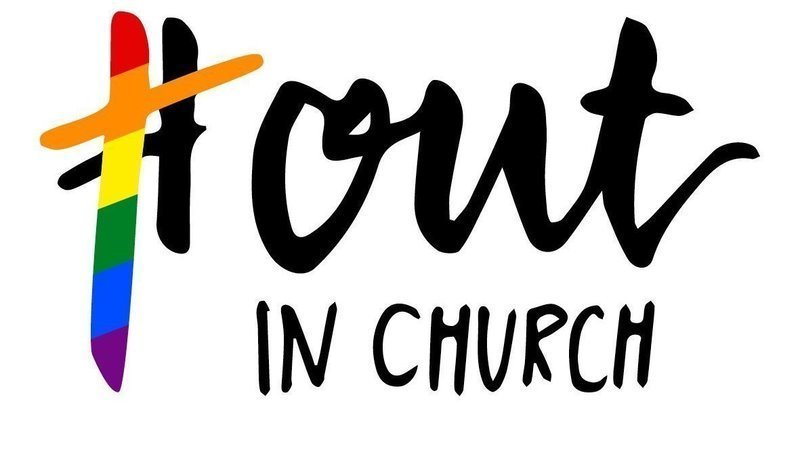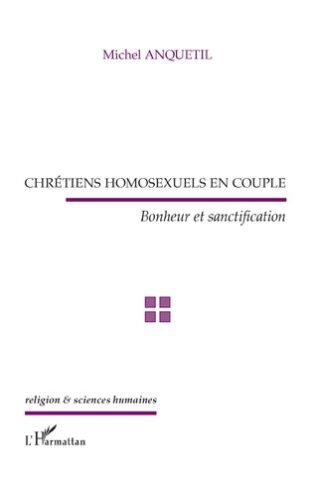Last year, the German Catholic Church was once again shaken when 125 queer people came out as part of the #OutInChurch campaign. A documentary featuring interviews with 100 queer Catholics about their experiences in their church was also shown on primetime German television.
The documentary told stories about fear, shame, discrimination, suicidal ideation as well as hiding in order not to lose jobs. It also told stories of love, hope, joy and faith among queer people, who celebrated being created this way and (still) belonging to the Catholic Church.
The story of #OutInChurch began a year earlier. After the collective coming-out of 185 actresses, in February 2021, in the German campaign #ActOut, the gay lay minister Jens Ehebrecht-Zumsande suggested on Facebook a similar action for queer Catholics. The response was tremendous, and he decided to contact many different Catholic groups for a unified action. It started with a Zoom meeting later that February, in which over 100 people took part.
Many of them would not turn their camera on or show their names. I was one of them.
We were meeting regularly, writing our manifesto, and discussing demands. We also wanted to present publicly to the bishops. One goal was to have a huge public “outing,” with a website where more than 100 queer would present a mission statement. During this process, the German journalist Hajo Seppelt contacted our group with an idea for a documentary. Verlag Herder, the publishing firm, asked for a book.
The documentary told stories about fear, shame, discrimination, suicidal ideation as well as hiding in order not to lose jobs.
The documentary was widely watched and the webpage visited so frequently that it had to be moved to a different server with more capacity.
We invited the Bishop Georg Bätzing, chair of the German Bishops’ Conference, for a meeting in March 2022. During the spring meeting, we symbolically gave him 120,000 signatures, along with our demands, and had a one-hour meeting with him, three other bishops and Beate Gilles, the general secretary, in Vierzehnheiligen, Germany.
As moderator of this meeting, I was left with mixed feelings. In our small group, we realized that we would expose ourselves with our lives, stories, and feelings. We would rely on the bishops to see if our work would be taken for granted, taken as an expression of shame and shock or taken as a real encounter. We realized how deep the unequal power dynamics were, even in a setting that we had set up and moderated.
After all, we invited the bishops to join us. Again, the strength of the group sharing and reflecting on our experiences had a personal, spiritual and theological impact.
Six months later, 500 LGBTQ Catholics joined the public outing on our webpage. We continued to work in big virtual meetings, and more and more, people showed their faces and shared their names. We worked in small groups and coordinated the initiative through a steering committee.
What do we want? We want change, and therefore, we passed seven demands. One demand concentrated on a change in working conditions, something which did take place several weeks ago when the German Bishops Conference agreed to revise contract laws for church workers. But not all church workers were included: not Catholic teachers, not priests, not deacons, not trans people, not lay theologians.
Let me quote our second demand: “LGBTQ+ persons must have access to all fields of activity and occupation in the Church without discrimination.”
Third, church employment rules need to be changed. An open life according to one’s sexual orientation and gender identity, even in a partnership or civil marriage, must never be considered a breach of loyalty or a reason for dismissal.
Our fourth demand is both tricky and relevant for the universal church:
Defamatory and outdated statements of church doctrine on sexuality and gender need to be revised on the basis of theological and social-scientific findings. This is of utmost relevance especially in view of the worldwide church’s responsibility for the human rights of LGBTIQ+ persons.
We know that this is an almost utopian demand. As a theologian, I know the most recent non-theological and theological research. There aren’t any objections. Therefore, we wrote a letter to Pope Francis and asked him to change the Catechism. We even attached a proposal for what could be written instead.
We also ask that the church not withhold the Sacraments from LGBTQ couples and that the church not only oppose discrimination, but promote a culture of diversity.
In dealing with LGBTQ persons, the church has caused much suffering throughout its history. We expect the bishops to take responsibility for this on behalf of the church, to address the institutional history of guilt and to advocate for the changes we call for. We do not expect to be “unemployed” in our campaign work so soon.
A few weeks ago, I listened to a public lecture by M. Shawn Copeland, a professor emerita at Boston College. She spoke about the experience of being a Black Catholic. One sentence summed up the theological and spiritual essence of our campaign: “You have to keep interest in yourself.”
Our manifesto starts with the words: “It’s us! There has been much talk about us. Now we speak for ourselves.” To keep interest in yourself means to speak out and to be visible, to believe that your spirituality matters, to know that it does make a difference how one lives or loves.
The #OutInChurch campaign is a spiritual journey for many LGBTQ Catholics. Even for those who had been out for quite a long time, the campaign reignited this process once more and gave it a new dimension.
For many of us, the past year has been filled with experiences of freedom , but also discrimination and trauma. Even within our big Zoom meetings, we were able to express both the joy of freedom and the bitterness of being hurt and discriminated against.
The #OutInChurch campaign is a spiritual journey for many LGBTQ Catholics. Even for those who had been out for quite a long time, the campaign reignited this process once more and gave it a new dimension. We all experienced a personal and communal exodus. Now, the Zoom conferences are mostly conducted with videos on and the names shown.
We have been meeting each other in small groups on the diocesan level, in church activities and panels, at pride parades and so on. But still, the synodal way was not able to pass its fundamental text on gender identities due to a nearly 40 percent veto from the bishops last September.
Almost one year after the launch of our campaign, I have learned that keeping interest in yourself is the key for staying Catholic. Although we must dialogue with bishops, we also need to continue walking on our path of freedom and self-respect. We need to live our faith.
Personally, the past year has marked an exodus from withholding, from being invisible in my personal life, from living in fear and always considering what to say. How could I be a good theologian without starting with my own life?




